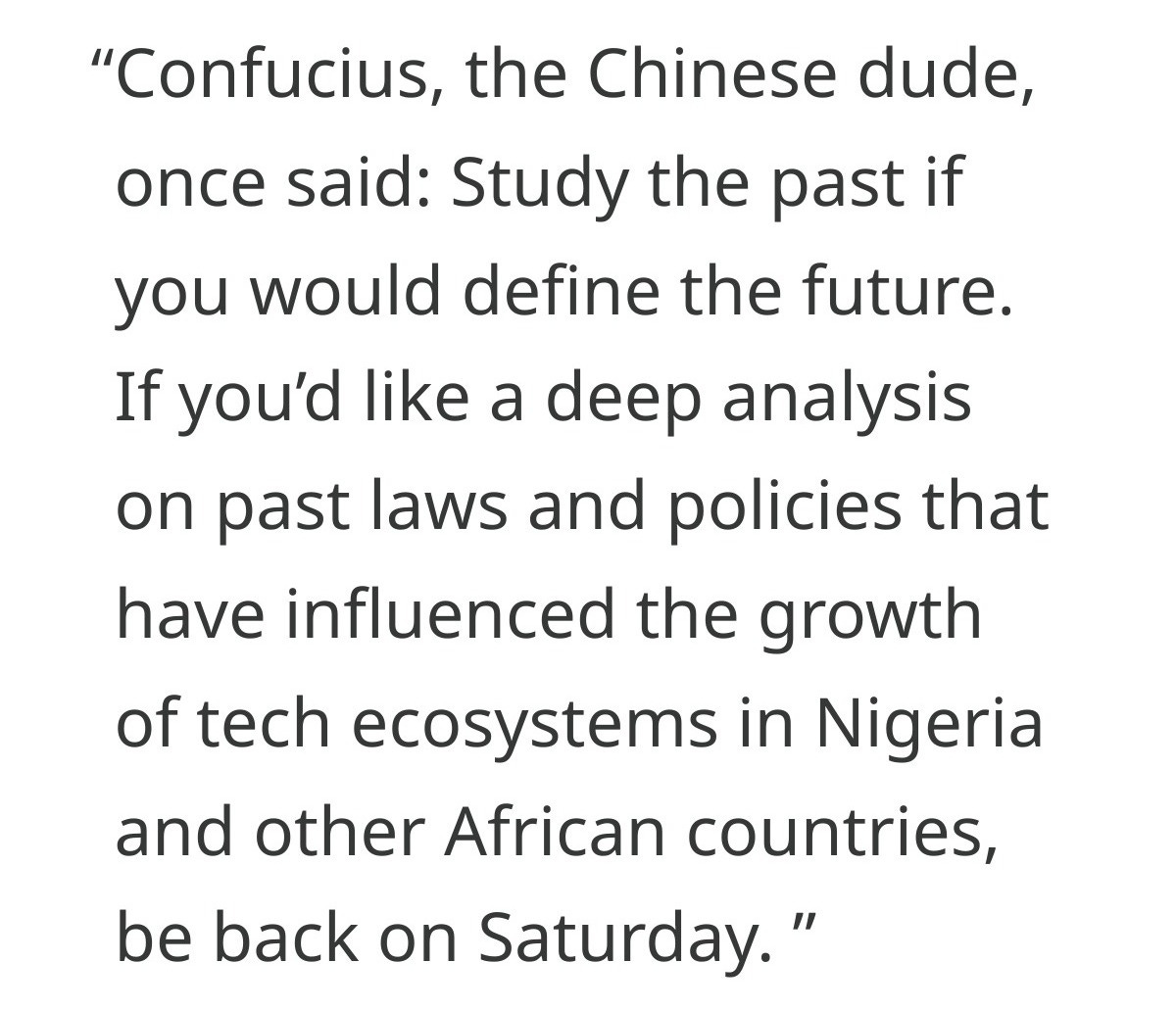How Past and Present Policies Have Shaped Africa’s Tech Ecosystem So Far
It's part ✌️ of the series
Hello, Dear Innovator 👋
Welcome to the last month of the first quarter.
Did your heart just skip a beat?
Reality check: It should! 😐😐
2025 started three months, and you’ve STILL not decided how you want to change the world (or your lga, if that’s really your speed) with your tech solution.
Hmmmm.
‘member this? 👆👆
Let’s get it into part 2 (read part 1 here)
Running It Back…
Africa’s tech ecosystem has seen remarkable growth in recent years, however, its trajectory has also been heavily influenced by a mix of both restrictive past policies and more recent progressive reforms.
For example in Nigeria, one of the earliest significant interventions was the establishment of the Nigerian Communications Commission (NCC) through Decree 75 of 1992 under military rule. This law aimed to regulate the telecommunications sector and break the state monopoly, but it wasn’t until the democratic era and the Nigerian Communications Act of 2003 that private players like MTN and Glo truly transformed the market. By contrast, Kenya’s earlier liberalisation of telecoms in the late 1990s allowed it to leapfrog Nigeria in mobile penetration and innovations like M-Pesa.
Another pivotal past policy in Nigeria was Decree 38 of 1992, which ended the Nigerian Television Authority’s monopoly and paved the way for private broadcasting. This deregulation spurred media innovation and digital content creation, laying early groundwork for today’s tech-driven entertainment sector. South Africa, in contrast, took a more proactive stance with its 1996 Telecommunications Act, which not only liberalised telecoms but also set a framework for universal access, creating a more integrated tech ecosystem.
Fast forward to the 21st century, and Nigeria’s tech landscape faced significant hurdles from policies like the Central Bank of Nigeria’s (CBN) 2021 ban on cryptocurrency transactions. Intended to curb fraud and protect the naira, this move stifled fintech innovation, driving startups like Lazerpay to shut down or pivot. The contrast with Ghana is stark, as its government embraced blockchain early, launching a sandbox in 2019 that nurtured fintech growth without such heavy-handed restrictions. The crypto ban in Nigeria, though reversed in late 2023, exemplifies how past overreaching policies have somewhat contributed in stunting progress in a sector where Nigeria had global potential.
But it’s not all been bad news.
For example, the Nigerian Startup Act of 2022 marked a turning point in the country. Signed into law by then President, it offered tax incentives, regulatory clarity, and support for startups, aiming to undo decades of neglect. This act also mirrored Tunisia’s 2018 Startup Act, which boosted its tech scene by streamlining business creation and attracting foreign capital. Likewise, Rwanda’s success with its 2017 ICT policy owes much to its government’s relentless follow-through, a lesson which a lot of other African countries/governments may benefit from, by replicating it as it fits their unique positions. Kenya’s Digital Economy Blueprint, launched in 2019, had its focus on regional integration and practical infrastructure rollout which helped to amplify its tech reach across East Africa.
What Next?
Across Africa, past and present laws reveal a pattern: when regulation balances innovation with stability, tech thrives. This is perfectly exemplified in South Africa’s data governance frameworks and Mauritius’ crypto-friendly policies, among others too numerous to mention.
However, despite these snatches of favourable policies, timely execution often lags behind ambition. And it’s the same across board for a lot of African countries; with some falling far behind others. Today’s policies show promise, but their success hinges on overcoming historical inertia.
The question, therefore, isn’t just what laws exist, but:
How consistently and how timely they’re applied
How careful each new administration is to not undo the progress of past ones
And, in the absence of the first two, how well positioned Innovators are to catch the positive sides of changing winds.
If governments/policies cannot be separated from African innovation, then room must be created for a symbiotic and mutually-beneficial relationship of some sorts.





